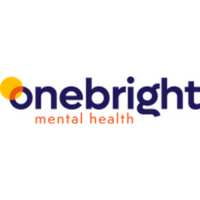How to recognise and support employees with eating disorders
It is estimated that 1.25 million people in the UK have an eating disorder, which equates to almost 2% of the population. This means that for every 100 employees, you could have two who have an eating disorder.
Eating disorders can develop at any age but risk of onset is highest for adolescents and young adults. Atypical eating disorders are the most common, followed by binge eating disorders, and bulimia nervosa. Anorexia nervosa is the least common.
Eating disorders are defined by the negative beliefs and behaviours they cause people to have about themselves and their eating, body shape and weight.
They can cause people to adopt restricted eating, binge eating and compensatory behaviours (such as vomiting and excessive exercise). The emotional and physical consequences of these beliefs and behaviours maintain the disorder.
Signs and symptoms
There are several signs and symptoms of an eating disorder, but these are some of the signs that may be easiest to spot in the workplace:
- Dieting or restrictive eating practices (such as dieting when they are underweight) that are worrying them.
- A change in eating behaviour.
- Social withdrawal, particularly from situations that involve food.
- Taking part in activities associated with a high risk of eating disorders (for example, professional sport, fashion, dance, or modelling).
- Mental health problems commonly associated with eating disorders, including depression, anxiety, self-harm, and obsessive-compulsive disorder.
How employers can support employees with an eating disorder
When supporting employees with an eating disorder, it is important that support and action are synergic. This is because eating disorders are complex illnesses and require systemic understanding and support that is consistent.
1. Be compassionate
It is crucial to be honest, open, precise, and compassionate, non-judgemental and not condescending. Eating disorders are not a choice that people make, they are illnesses.
It is crucial for employees to truly and compassionately develop an accurate understanding of eating disorders founded by evidence-based information.
Ensure that information is well researched, scientifically grounded, available, accessible, and well disseminated through meaningful events for instance, not just leaflets.
2. Culture of acceptance
Foster a working environment where the person feels nurtured, accepted and fully supported and where employees are encouraged to get help.
Create a culture where accepting help is not about relinquishing control to someone else, but the start of a process of collaborative empowerment.
3. Provide control
A person who suffers from an eating disorder often believes they do not deserve to get well. Sometimes people think that they must become unwell before they can give themselves permission to recover. Some think they are unwell only if they are admitted to hospital, for example.
Ensure that the person who suffers from an eating disorder has control over support and treatment choices.
4. Make support visible
People with eating disorders experience shame and guilt, so can be secretive about their disorder. This results in them struggling to reach out for support. Therefore, the key is to ensure that there is an environment that directs the person to the appropriate support.
Create an open environment where emotions are do not have to be ‘hidden’. Be thoughtful about digital and information environments – certain social media content, diets, emphasis on how celebrities look is not helpful for people suffering from an eating disorder.
Supplied by REBA Associate Member, Onebright
Onebright is a personalised on-demand mental healthcare company.








